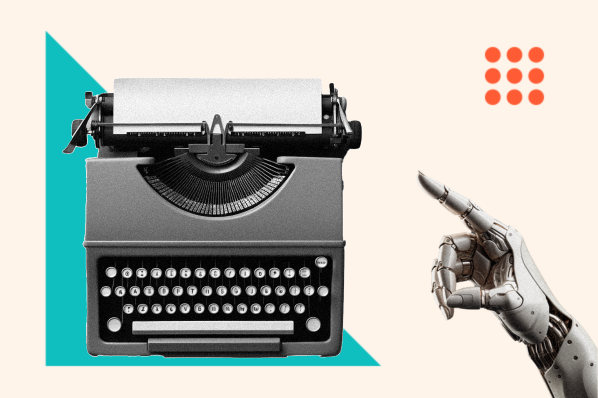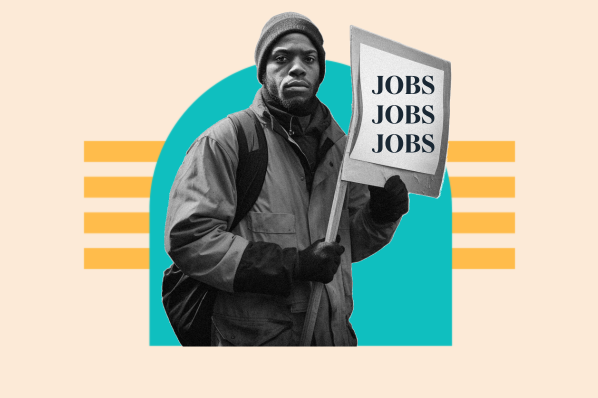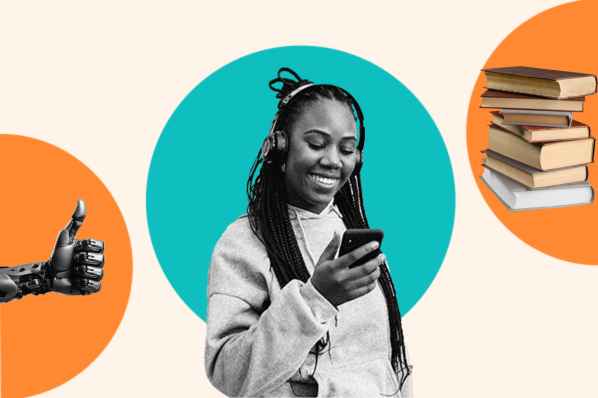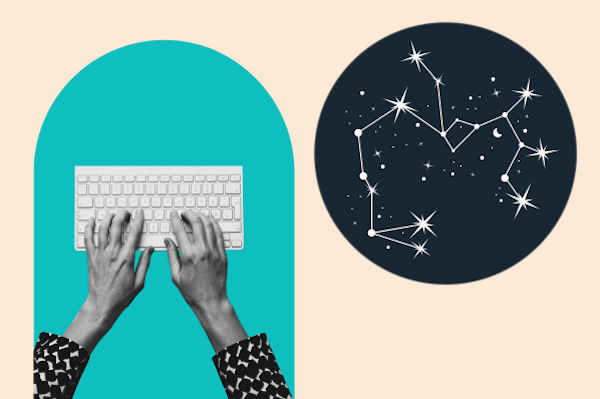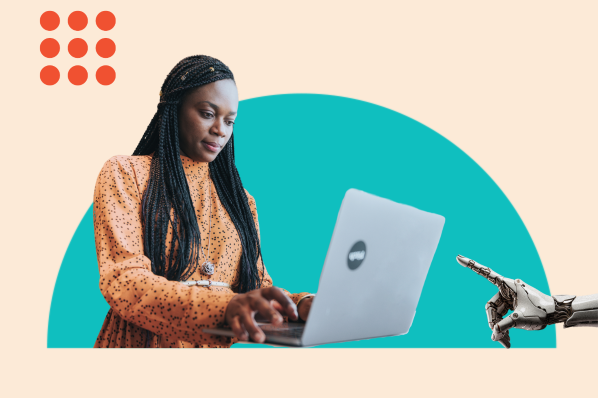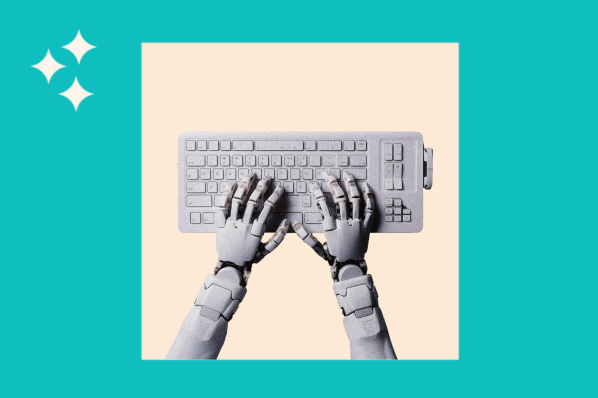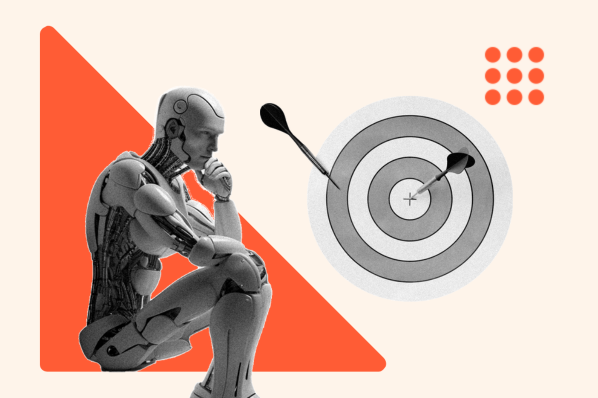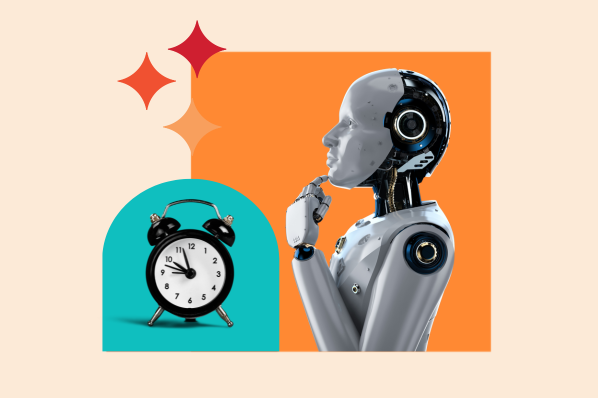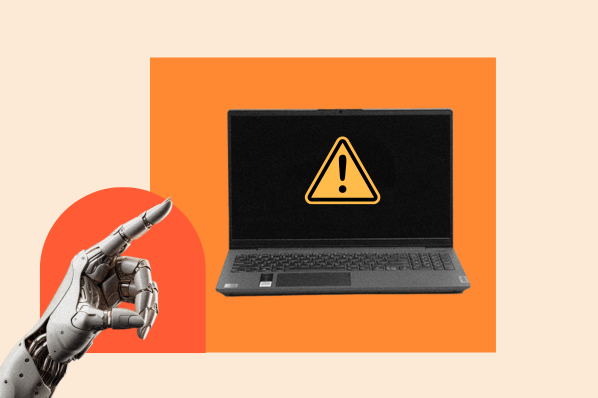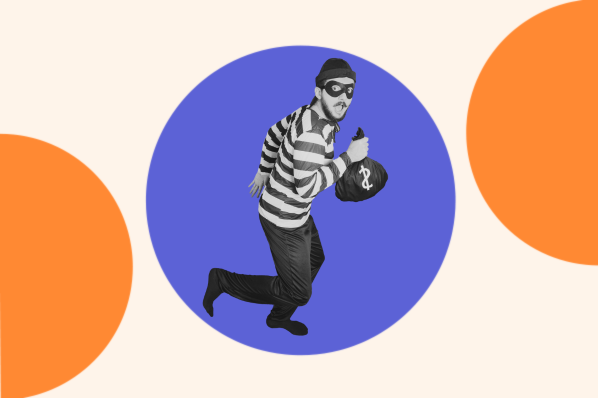I am a hopeless romantic.

I grew up binge-watching all the classics: Sleepless in Seattle, Pretty Woman, When Harry Met Sally.
Each movie followed a familiar trajectory: the initial spark, the controversy that threatened to tear them apart, and the swoon-worthy ending where the guy declared his undying love and they rode off into the sunset.
A couple things missing from each movie? Swiping on Tinder. Asking a friend which Hinge profile picture of you they like better. And AI.
AI was most definitely absent.
Which is why I was more than hesitant to hear that AI has officially entered the dating world.
Here, I tested out a few different AI dating apps to learn whether AI makes dating in 2024 better, or whether it should be kept far away from the rom-com shelves.
The Rise of AI-Powered Dating Apps
Until 2023, there were limited options when it came to AI dating apps.
Google Trends shows that AI-powered dating apps have only recently taken off. And AI features are just now being added into many of the top dating platforms.
In fact, Match Group — the parent company that owns Tinder, Match.com, Hinge, and OkCupid — announced it was testing AI features in August 2023.
And, while one of the AI dating apps I investigated launched back in 2019, most of the ones I reviewed didn't launch until this year.
This is all to say, if you’ve never even heard of an AI dating app, you’re not alone.
Let's start with Tinder. Since most of us did, back in high school.
In its August 2023 earnings call, Match Group announced they'd begun activating several teams to work on implementing AI into their various apps. Many of these AI features are reportedly going to launch over the next two quarters.
One of the most prominent features is Tinder’s new AI photo selection, in which users’ can leverage the help of AI to ensure they're choosing the photos that best represent their true personalities.
(Back in my day, we did this by passing our phones to our friends and requesting they choose their favorite pictures of us. I know, I know … so archaic.)
Match Group also plans to use AI to help users figure out which profiles might be a good match for them.
As they reported in their earnings call, “Tinder plans to leverage artificial intelligence ('AI') capabilities to surface the right content to the right people to help improve relevancy and, ultimately, user outcomes. While the core Swipe® feature will remain central to the Tinder experience, the changes are meant to make the app more dynamic and engaging.”
They added, “We're also working on larger AI projects that more holistically improve the end-to-end dating experience.”
Admittedly, the dating app experience could use some work.
Many of us spend hours swiping left or right on auto-pilot, and it can end up feeling far too similar to the ordeal of choosing a Netflix show before bed: With too many options, you end up not choosing anything, and going to sleep instead.
So I’m all for any AI features that can help users optimize their profiles to best showcase their true selves. I’m equally in favor of AI providing users with dating tips, or helping them determine a good match.
But there are some concerns with AI taking over the dating app algorithm.
As my colleague, HubSpot's Associate Marketing Manager Erin Rodrigue puts it, "My concern is the loss of decision-making control, since AI will be showing you who it thinks you'll like. Your perfect match could be on the app, but they may not fit its algorithmic criteria … my boyfriend and I are very different, and I wonder if the Tinder algorithm would even match us!"
In Comes An AI Dating App That Scans for Attraction
Once I'd perused a few of the more straightforward AI features, I came across iris, a dating app launched back in 2019 with 1M+ downloads that uses AI machine learning to determine which facial features you're most attracted to, and matches you with your most compatible partners.
Here’s how it works: After downloading the app, you’re shown roughly 50 images, and you’re tasked with clicking “Pass” “Maybe” or “Like” for each.
As you make your selections, the algorithm begins gleaning which types of facial features you're most attracted to, and only shows you more of those.
In other words, the machine learning algorithm gets increasingly better at knowing your “type."
Once you’re done, you’ll see a row of images of real people that the app thinks you’ll find the most attractive, and you can begin chatting with them immediately. (I should note: Most of the features are only available on the app’s paid version.)
When it comes to efficiency, iris certainly has its allure.
Most dating apps require you to filter by location, age, gender, politics, and religion — but there’s no filter for attraction. And yet, attraction is typically the first criteria people have when they’re swiping.
When I spoke to Dr. Igor Khalatian, Founder of iris Dating and previous VP of Development at Oracle, he told me his company believes physical attraction is key in creating a meaningful connection.
He has a point. On the TV show Love is Blind, for instance, only 35% of couples (7 out of 20) are still together after the big “reveal” in which they see each other for the first time in-person. Many of those couples break up once they've determined there is no physical attraction.
“Connections based on mutual interests can work, but we don't lose sleep over someone because they share our hobbies, musical taste, or political affiliation,” Khalatian says. “Physical attraction is the strongest starting point."
Khalatian adds that iris uses predictive AI to allow you to “skip thousands of swipes, and cut the wait time.”
And according to his data, this approach works.
Khalatian told me that an average female user likes roughly 3% of randomly selected men's profiles — but when iris shows her profiles selected based on her unique taste, that number increases to a whopping 55%.
But there's something limiting about starting from a place of attraction, because attraction fades. And, beyond the initial spark, we could be risking long-term relationship satisfaction when we primarily pursue based on attraction.
In fact, one study found that married people who are more physically attractive are more likely to get divorced than others.
Are we missing out on more when we just seek out attraction first?
If Sally came across Harry in the dating app world, would she have swiped?
AI Dating App Features: Real Ways of Finding Love, or Over-polishing Ourselves?
There are plenty of other dating apps with AI-related features on the market right now.
Amori, an audio-focused dating app launched in 2023, encourages audio-based conversations between users instead of text conversations.
And, while the app itself isn't AI-based, it does offer Amori Bot, an AI chatbot that enables you to receive dating advice and find your most compatible matches.
Alternatively, you might test out Junia's dating app message reply generator.
I prompted to “Please suggest a date on Sunday to watch football at a Boston bar,” and it whipped up this response:
And then there's Blush, an AI dating simulator with 10K+ downloads that allows you to “practice” dating with AI-created potential matches. (Which is a slightly terrifying concept — are we really at a place where we need to practice dating with robots?)
I'll admit — I see the appeal. These businesses are incorporating AI features in the hopes of providing their users with clear, straightforward guidance in the otherwise nuanced and often disappointing world of dating.
And some might truly find luck with the help of AI. Perhaps the photos they've chosen for themselves are grainy and blurry, or their bios lack any pizzazz.
But dating apps aren’t akin to other forms of content creation. We aren’t trying to create polished landing pages here, or send savvy sales prospecting emails.
We’re trying to show our true selves. We’re trying to be known, and find deep, meaningful connections with other messy, weird, funny, complicated humans like ourselves.
And filtering our conversation-style, photos, or attraction preferences through AI feels like we’re moving further away from the very thing we’re desperately seeking.
Instead of moving closer to real, human-to-human connection, it could result in an age of dating entirely behind a computer screen.
And is that really dating, at all?


